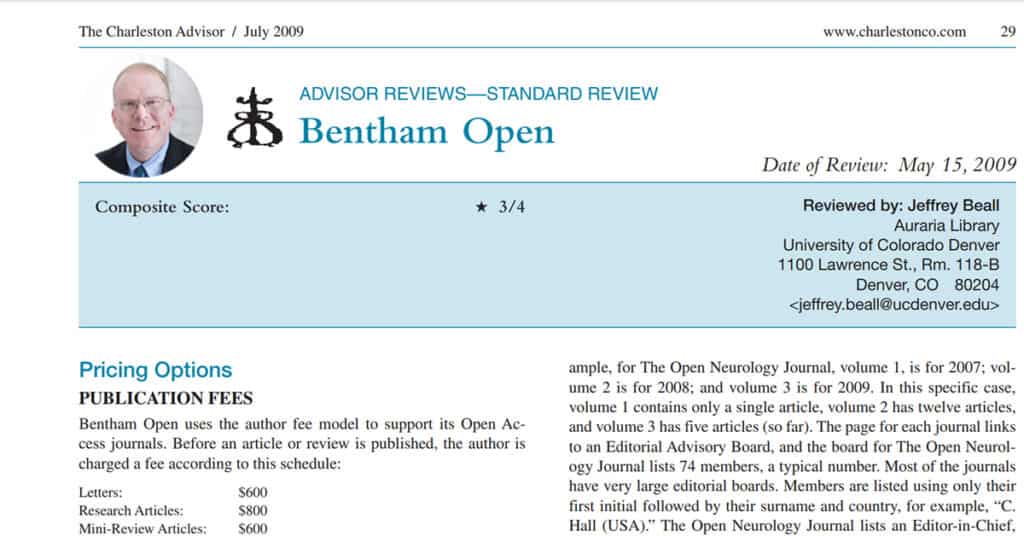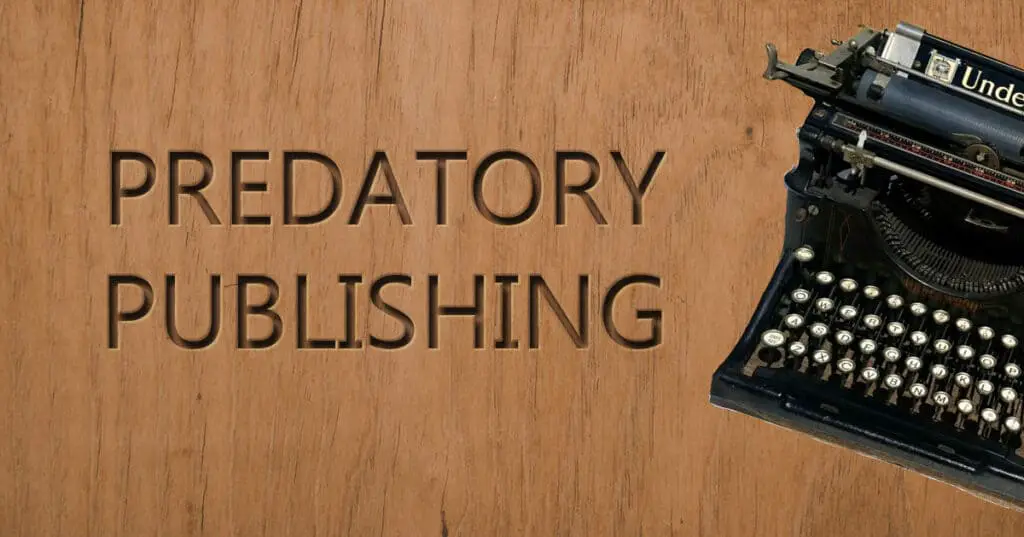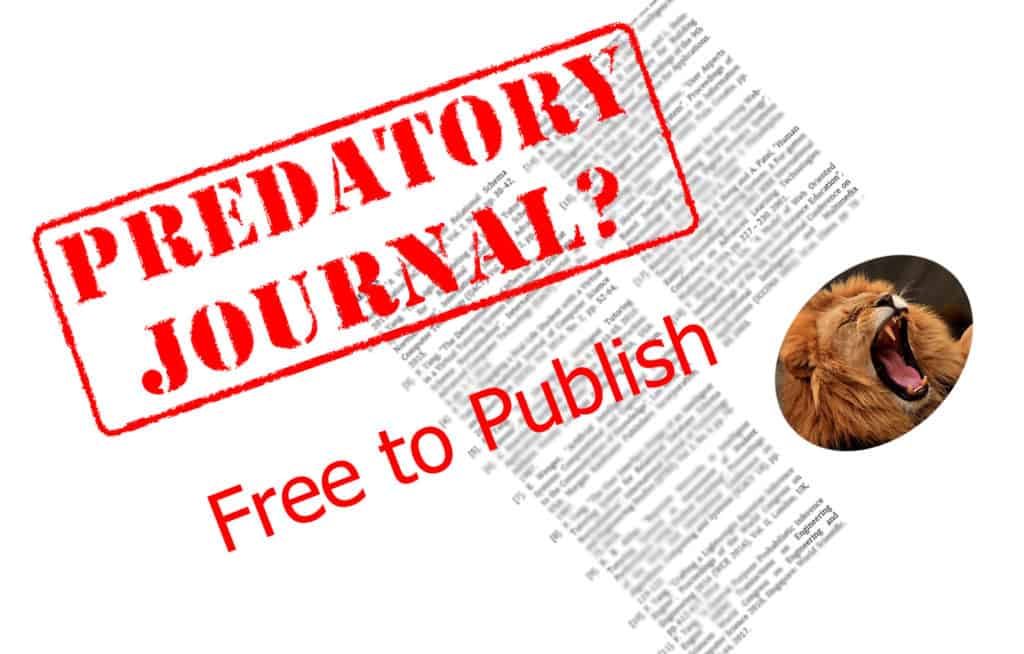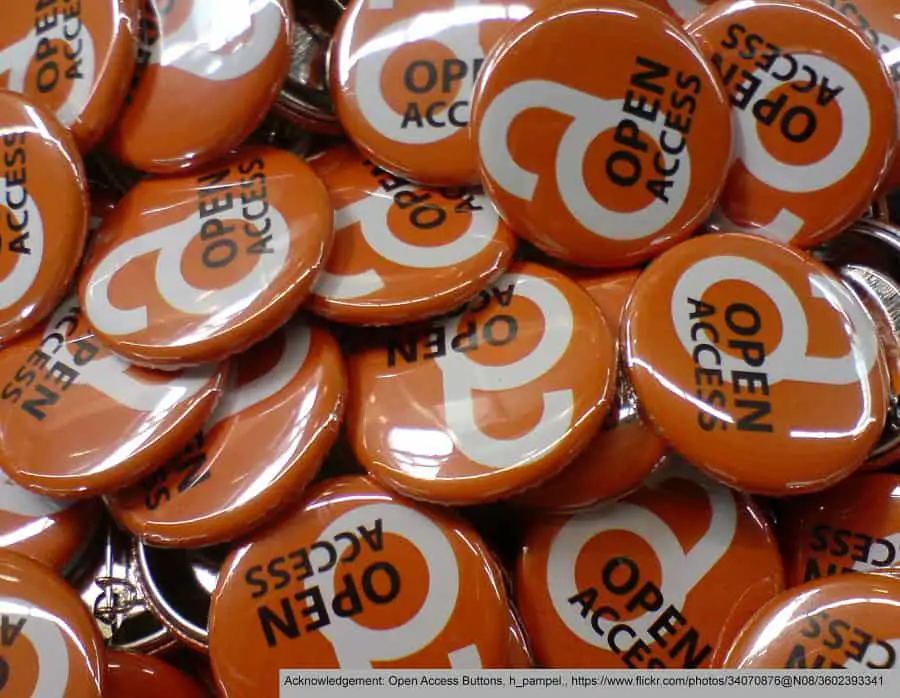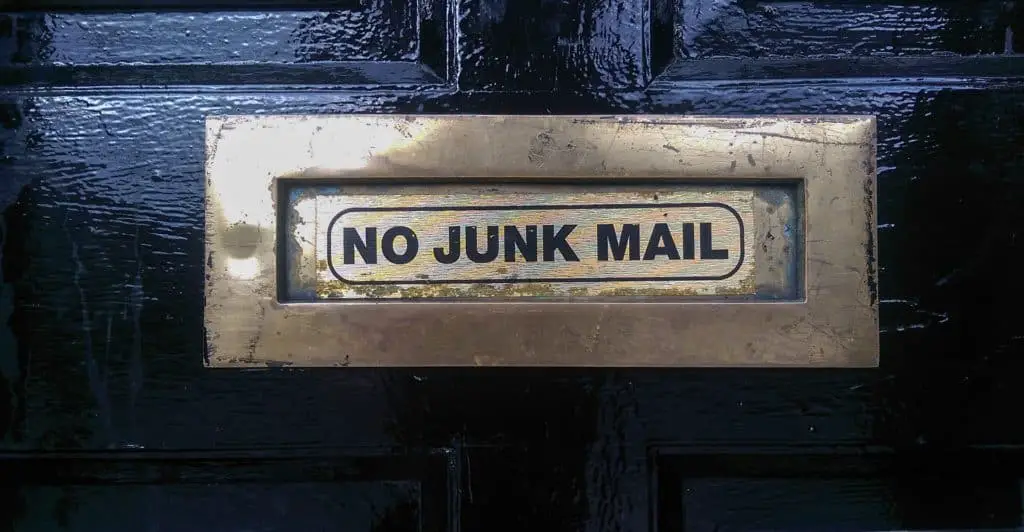What was Beall’s First Paper on Predatory Publishing?
In this article we put a spotlight on, Beall, J. 2009. Bentham Open. The Charleston Advisor 11(1) 29-32. This paper was the first paper by Jeffrey Beall to discuss predatory publishing. In the paper, he analyzes the publisher Bentham Open which, at the time, published 236 journals.
